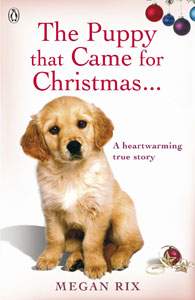I am an experienced primary school teacher and over many years I visited lots of schools in my role as an author. For this reason, a few years ago, I felt qualified to make several suggestions over the phone to my publisher about how a series of books could be marketed in primary schools. This clearly irked my publisher and in a forthright manner she declared: ‘But Steve you’re only the auth…’
She then checked herself mid-sentence and I seem to recall went on to explain about how as the publishers they would deal with marketing their way. To be honest I wasn’t really listening at that point. I was wondering ‘did she really say…’
Now I know what I think she was going to say. Being a creative bunch maybe you could make some suggestions? In her defence I’ve wondered if she might have been going to say; ‘But Steve you’re the only authority we have on 9th Century Babylonian sub-cultures!’ having in a temporary aberration (possibly brought on by the stress of dealing with demanding authors) mistaken me for their expert on the subject. Maybe she was about to phone him or her when I interrupted her with my unappreciated advice. In my case, I’m afraid I know nothing about Babylonian behaviour – where there Babylonians in the 9th Century? I look forward to any scenarios that occur to you as alternatives. Answers on a blog post please.
As it turned out this same series of books was later licenced to a New Zealand publisher. My UK publisher never bothered telling me this until I received copies of the books. On first unwrapping them this was a pleasant surprise and I still appreciate receiving as few pennies from Australia and New Zealand from time to time. (What particularly appeals to me is the thought that although I’m not working very hard, I am effectively working on the other side of the world while I’m asleep!) However, when I investigated further the enjoyment I got from this unexpected achievement became somewhat tarnished. You see the antipodean publishers had decided to adapt the books for their market without consulting me – the author! (After all, why would they? I’m only…)
Let me share with you a seemingly irrelevant fact. It seems that in Australia and New Zealand people don’t eat ‘lollies. Apparently in this part of the world they refer to them as ‘ice blocks’. As I say, generally an innocuous difference… unless you’ve written a poem for children repeatedly using ‘lolly’ as one of the line-ending rhymes. I imagine you can see straight away that ‘ice block’ doesn’t rhyme with ‘lolly’… or more significantly any of the words that do. To make matters worse, whereas in one case they just replaced one word with the other, which was horrible enough, in other places they’d tried to re-write the poem in order to substitute one for the other and in doing so disrupted the rhythm of the words, which I’d worked so hard on to make run smoothly and evenly! As well as being upset and unable to understand why they didn’t ask me for some help with rewriting this piece, I can’t help wondering whether antipodean teachers think I’m a terrible poet! Some of the other books contained some mathematical challenges that the publishers also decided to change for absolutely no obvious reason – no cold confections were referred to! – and manged to get the maths completely wrong. They probably think I’m an awful mathematician as well as an abominable poet ‘down under’!
Another publisher made a horrifying mistake, though to be fair they corrected it as soon as I pointed it out. Not before they’d brought out the first edition in the US though. It was a non-fiction book about space. I’d written something along the lines of ‘Mercury, Venus, Earth and Mars are solid planets and Jupiter, Saturn, Uranus and Neptune are gas planets.’ In the book this should have covered three lines of text but the central line was missing. The book hence knowledgably declared that; ‘Mercury, Venus, Earth and Mars are gas planets.’ Now I probably can’t visit America without embarrassment either as there they’ll think I’m a terrible scientist!
My publishers have turned me into a nincompoop! It must be because I’m only the auth…
Recently published; ‘Spell Binding Stories KS1’ Stories and poems to aid the learning of spelling – and make it fun!


















